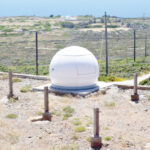In its further quest to squarely tackle the challenges bedevilling the citizens, the federal government took some critical steps like setting the nine areas of priority and the broad agenda of Security, Economic and Anti-Corruption (SEA). It developed a framework, the Economic Recovery and Growth Plan (ERGP), that will expire by December 2021. In place of the ERGP, the Federal Executive Council (FEC) has approved a five-year National Development Plan (NDP) targeting N348.7 trillion investments.
To avoid leakages of funds, wastes and unhealthy intermissions according to the minister, there would be a Development Plan Implementation Unit (DPIU) that would be reporting to the National Steering Committee headed by the Vice President to ensure a strong mechanism and framework to promote good performance and accountability in various processes necessary for implementing the plan.
Reading “The view from America” by Dr Chido Nwangwu (What Nigeria and Africa can learn from America’s Infrastructure Agenda) published recently, I discovered that the United States of America had taken this path when its House of Representatives approved the Bipartisan Infrastructure (BIF) legislation on November 5, 2021. The USA’s BIF is a $1.2 trillion Infrastructure Investment and Jobs Act’ H.R.3684. It focuses on investments and spending on technology, highways and rail networks, energy and climate change issues among others. The Nigerian Government is therefore on course, and needs all the support to ensure huge success on the projects for the NDP.
However, the government must not lose sight of the limitations of the Millennium Development Goals (MDGs) because the framework lacks integration of Geospatial Data. After a critical review, the UN came up with 17 Sustainable Development Goals (SDGs) projected to propel countries to far-reaching development through effective management of the social, economic and environmental situations impacting the people. Integrated into the SDGs framework as a global policy guide, policy and project implementers in the country must ensure mainstream Geospatial Data. For the new 5-year NDP to sufficiently yield positive fruits or impact the economy, the mainstreaming of Geospatial Data is essential.
The geographical space or area making up a country is majorly defined by land. Apart from the unquantifiable inherent riches in the land, it provides the substructure for every successful human endeavour such as construction, building and manufacturing works; food production among many others. Man is destined to conquer his environment, but not without the application of technological and scientific knowledge using requisite Geospatial Data. Many challenges of man are largely geographic in nature and as such there is hardly any success in human endeavours that can be recorded with geospatial inputs.
With Geospatial Data, issues of sustainable development can be analysed, modelled and mapped to provide quick and reliable basis for Evidence-Based Decision-Making, implementation and execution of policies, projects and programmes of the government which will in turn translate into robust socioeconomic system for better conditions of living. The Office of the Surveyor General of the Federation (OSGoF), the apex surveying and mapping office of the country, should as a matter of relevance be part of DPIU for efficient and effective implementation of the NDP.
Abu Michael is the Head of Press and Public Relations, Office of the Surveyor General of the Federation



